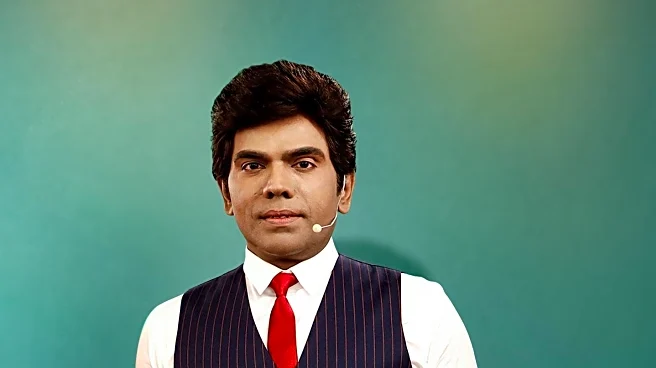What's Happening?
Leland Vittert, a successful broadcast journalist known for his work on NewsNation and previously at Fox News, has publicly shared his experience with autism for the first time. Vittert, who hosts the show 'On Balance,' has written a book titled 'Born Lucky: A Dedicated Father, A Grateful Son, and My Journey with Autism,' set to release on September 30. The book details his personal challenges growing up with autism and credits his father for helping him adapt to the world rather than letting the diagnosis define him. Vittert's story aims to offer hope to families dealing with autism and other conditions like ADHD, anxiety, and depression.
Why It's Important?
Vittert's decision to share his story publicly is significant as it brings attention to autism, a condition affecting a growing number of individuals in the U.S. His narrative challenges the stigma associated with autism and emphasizes the importance of not letting a diagnosis limit one's potential. By highlighting his father's approach to adapting him to the world, Vittert provides a perspective that could inspire other families to seek proactive strategies in managing autism. His book's release coincides with increased national discussions on autism, potentially influencing public policy and scientific research priorities.
What's Next?
With the release of his book, Vittert may engage in public discussions and interviews that further explore the themes of his journey and the broader implications of autism. His story could spark conversations among policymakers, educators, and healthcare professionals about effective support systems for individuals with autism. Additionally, Vittert's insights might contribute to ongoing debates about the root causes of autism, as highlighted by recent efforts from the Trump administration to investigate the condition's rising prevalence.
Beyond the Headlines
Vittert's story underscores the ethical considerations in how society perceives and supports individuals with autism. It challenges the notion of adapting environments to accommodate autism, advocating instead for empowering individuals to navigate the world independently. This approach may influence cultural attitudes towards disability and encourage more inclusive practices in education and employment. Furthermore, Vittert's narrative could inspire other public figures to share their personal experiences, fostering a more open dialogue about mental health and neurodiversity.










